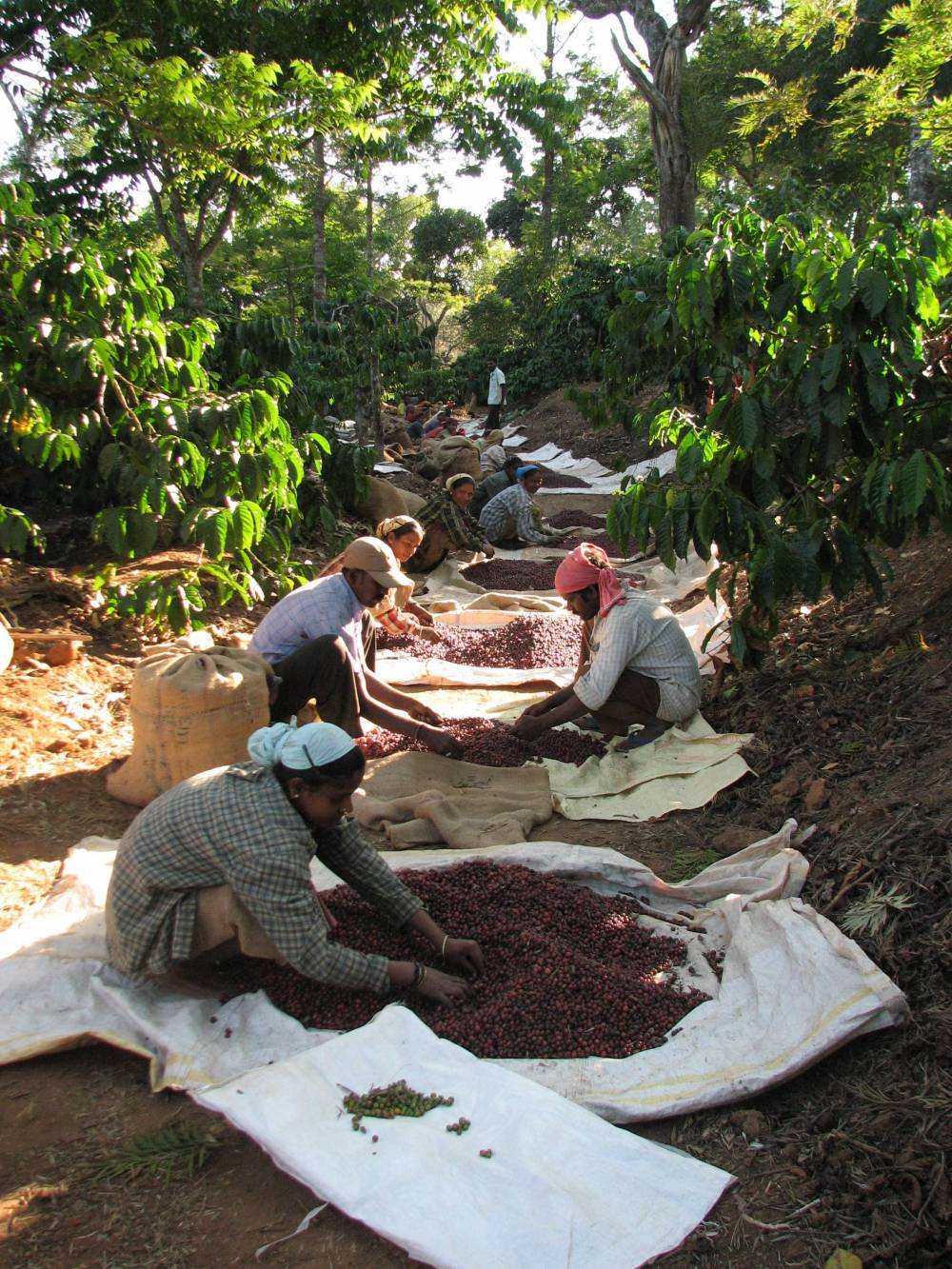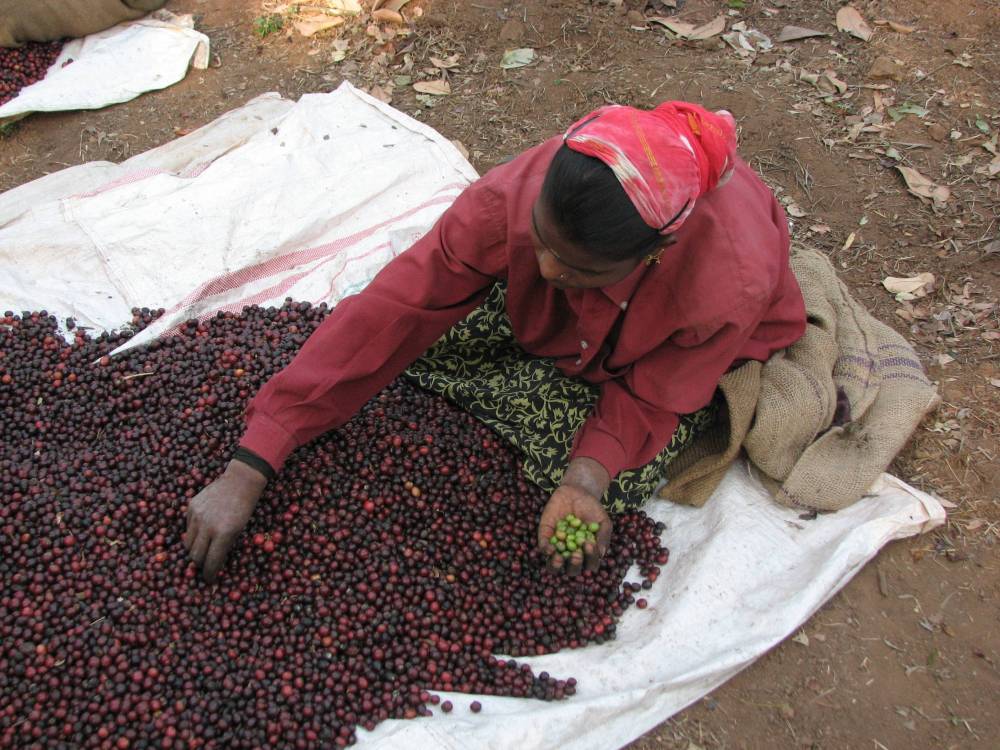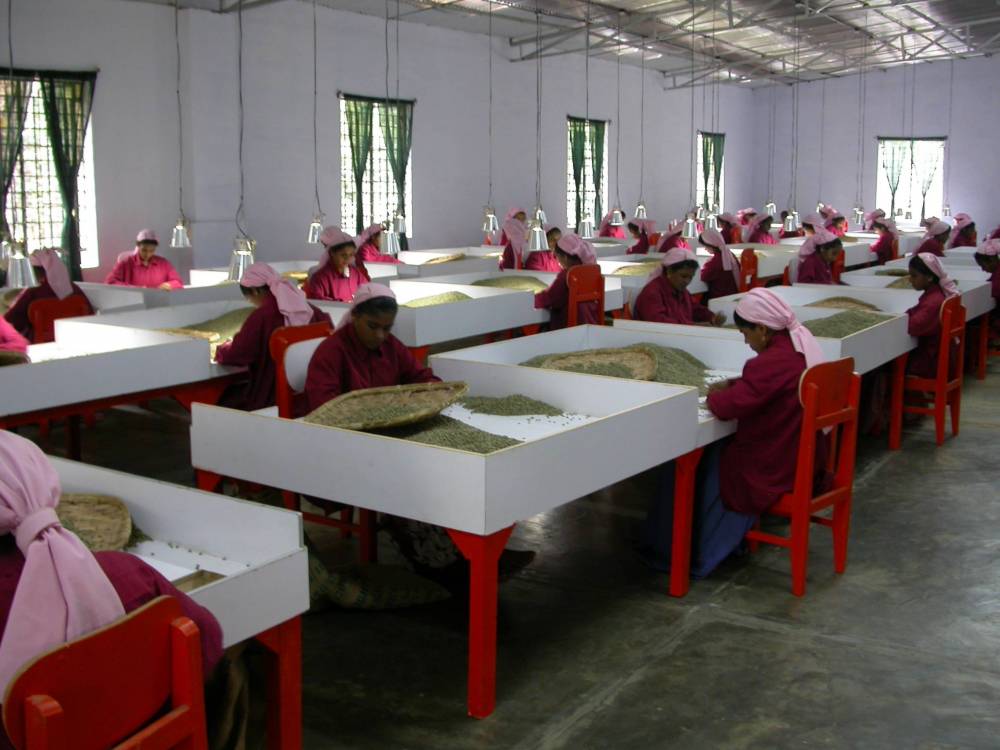Fairland estate
Kodagu district, Karnataka state, India






Our days on the estate, dreaming of elephants
When Mike took us to the guesthouse, passing in the midst of luxuriant jungle, I was struck by fine wire structures in the distance. They looked like the wires which carry low voltage current, used to protect crops from grazing animals; but they were much larger, with huge insulators, and were arranged in several series in height. The tallest was much higher than the coffee plants enclosed by those wires.
Mike noticed my enquiring look and my perplexity and with his usual gentle smile he explained, without my having said a word, that it was a system to keep the elephants off the coffee plantations. The problem, he said, is not that these voluminous pachyderms are attracted by coffee (if anything the monkeys are, but unfortunately we have no deterrent for them), but that they use the plantation area to cross from one feeding area to another.
On the one hand I was excited by the potential closeness of animals which I had already seen wild in the ancient hunting reserve of the Maharajà of Mysore, here in India, and in Tsavo Park in Kenya, but which I was now experiencing as one of those potential casual encounters in life, not as if they were in a park or zoo. But my childlike excitement at perhaps encountering them on the way to our residence was such that, when we finally reached the guesthouse, I was disappointed.
In the morning there was no sign of any passage of pachyderms, but ‘only’ a spectacular sight: a tall and apparently impenetrable jungle, which did not allow a view of the plantation nestling in the shade of the lower layers of vegetation and, in the distance, as yet shrouded in the morning mist, the curing work of Silpi, where the drying beds of the coffee in parchment were slowly being freed of the cotton covers which had protected them from the humidity of the night.
Arabica in India, a sign of quality and the infinite possibilities of this country







Where does the coffee we have selected come from?
Kodagu district is particularly suitable for growing coffee and pepper. In this area, frequently crossed by groups of elephants, coffee trees are grown under the natural shade of a tall, thick and impenetrable-looking jungle and they are defended by electrified wires to prevent the pachyderms’ passage.
The estate is owned by the Bombay Burmah Trading Company: this company played a very important role in the production and sales of Indian coffees having selectively harvested a special botanical variety of Arabica, named BBTC, which has then been used all around India.






How is this coffee produced
As it often happens in India, women are entrusted all the activities requiring accuracy: it’s them who hand-pick the cherries between December and January and them who take care of the further handmade selection after the coffee “wet processing”.
The estate also hosts a small local hospital, a nursery school and a primary school.
Some data
- Botanical variety: 82% selezione BBTC, 15% Sel. 9, 2% Chandragiri, 1% Sel. 795
- Processing: washed, in fermentation tanks (plantation)
- Harvest: December-January
- Drying: sun dried, on suspended beds
- Altitude: 900 – 1.070 m asl
- Quality/screen: A




